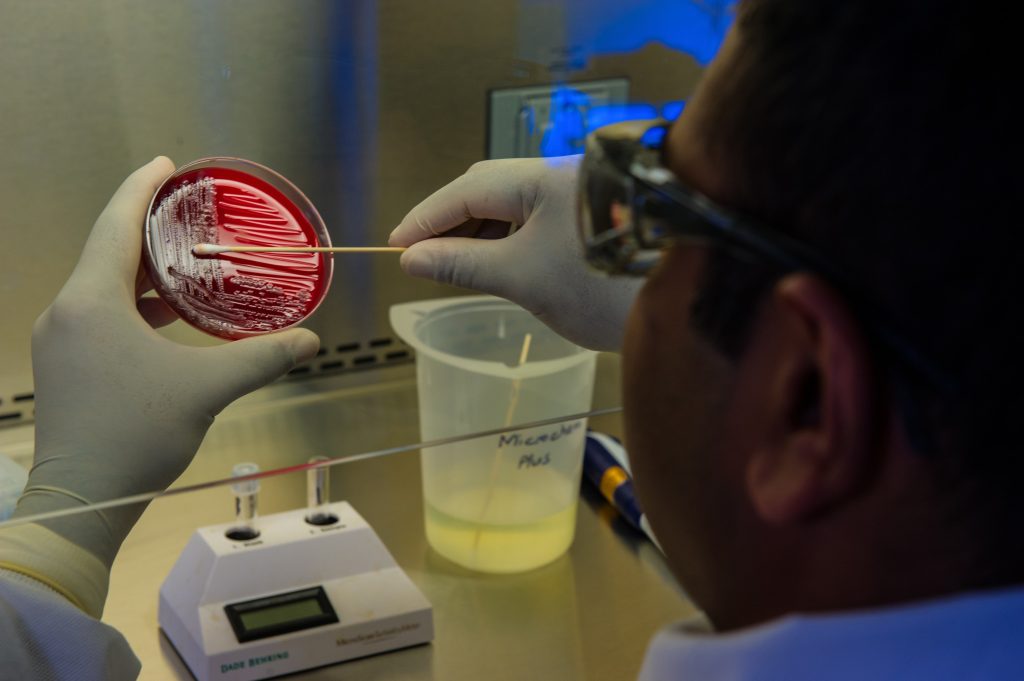What is the history of microbiology in Nigeria?
The history of microbiology in Nigeria is a fascinating and complex one. From the early days of indigenous microbial research to modern advances in understanding the microbial world, Nigerian scientists have tried to be at the forefront of the field.
What is microbiology?
Microbiology is the branch of science that studies microorganisms like bacteria, viruses, fungi, and protozoa. Microbiology has come a long way in Nigeria since the inception of Universities in Nigeria.
History of microbiology in Nigeria

Here’s a discussion on the vivid history of microbiology in Nigeria
Microbiology research began in Nigeria in the 1940s, but it was not until the 1950s that the field was formalized with the establishment of a Nigerian University.
But precisely, it was not until the 1960s that microbiology was formally taught in Nigerian universities.
In 1961, the University of Ibadan established the first microbiology department. And UI became a full-fledged university in 1962 although it was established in 1948.
Nigerian Society for Microbiology
The Nigerian Society for Microbiology (NSM) is a professional and non-governmental organization that was founded in 1972 and registered in Nigeria under the Land (Perpetual Succession) Act of 1961. The society is dedicated to the promotion and advancement of the science of microbiology in Nigeria.
The NSM organizes scientific conferences, workshops, and seminars; publishes scientific journals and newsletters; promotes microbiology teaching at all levels of education in Nigeria; and collaborates with other organizations to advance the field of microbiology in Nigeria.
Microbiology in Nigeria has evolved in recent years to focus on a wide range of issues, including food safety, water hygiene, and disease control. Microbiologists in Nigeria are also at the forefront of antimicrobial resistance research, which is a growing concern worldwide.
COVID-19
Nigerian microbiologists have recently contributed to the fight against COVID-19 by conducting research and attempting to develop new diagnostic technologies. Dr. K. O. Elimian, a Senior Lecturer at the University of Benin is a notable figure in this research.
The first confirmed case of COVID-19 in Nigeria was reported in Lagos on February 27, 2020, and since then, the country has seen an increase in research activities aimed at understanding and managing the disease.
The faculty of science has traditionally been in charge of teaching basic microbiology in Nigerian institutions, whereas the college of medicine typically includes the medical or clinical microbiology unit.
Ebola crisis
In the wake of the 2014 Nigerian Ebola crisis, the Lagos State Government in conjunction with the Federal Ministry of Health was able to successfully follow up on 894 contacts. The outbreak was effectively controlled.
Nigerian Medical Journal has seen a surge of published journals in the area of the mechanisms of antibiotic resistance in bacteria, and the potential use of probiotics to help prevent or treat infections.
Despite significant progress in the field of microbiology in Nigeria, there are still numerous challenges that must be addressed. These include research funding, laboratory equipment modernization, and the training of new microbiologists.
Microbiology in Nigeria has a dynamic history that has seen significant progress over the years. Nigerian microbiologists’ contributions have advanced our understanding of microorganisms and their impact on human health and the environment.
Microbiology is under which department?
Microbiology falls under a faculty in most universities in Nigeria. For instance, at the University of Benin, microbiology falls under the Faculty of Life Sciences making microbiology a department.
Microbiology can also be a subject taught in medical schools. At the University of Ekpoma, medical microbiology is taught in the department of Medical Laboratory Science.
Microbiology courses in Nigeria
- Environmental and Public Health Microbiology
- Industrial Microbiology
- Food Microbiology
- Pathogenic Microbiology
- Microbial Genetics and Biotechnology
Read Next
Can I study medicine after microbiology in Nigeria?
15 Benefits of studying microbiology in Nigeria
History of microbiology in Nigeria
Is microbiology a good career in Nigeria
Can you use the gram staining protocol on mycoplasma
